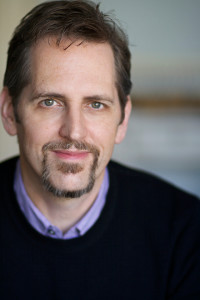I see the 3 stages of a script as follows:
- Idea/concept
- Structure/outline
- Actual script pages
You can probably guess from the title of my book which one I think is most important to a script’s eventual prospects.
That’s right, it’s the idea/concept. In my book, I propose that 60% of what determines a project’s chances of success is right there in the first decisions one makes, regarding what the story is about. Meaning the main problem that has to be solved at the center of it. (In my course based on the book, I take student’s through a step-by-step process to evaluate and adjust their idea/script through 35 lessons – 5 each on the 7 key elements.)
Why am I so focused on this? Because I’ve noticed that most writing instruction is focused on the later stages — structure, scene writing, even navigating the business — and too quickly bypasses “what makes a good idea” worth spending months or years on, in the first place.
AND WE WRITERS TEND TO DO THE SAME THING.
We usually want to jump into the actual “writing” (at least the structure/outline, if not the actual scenes) and don’t want to spend forever questioning our basic premise and revising it, or coming up with endless possibilities before zeroing in on one “best” one.
And that’s totally understandable. I’ve done it.
But it is probably the single biggest mistake I see writers making.
Of course I’m not saying structure decisions and the actual scene writing aren’t important. I’d put “structure/outlining” at 30% of what determine’s a script’s chances in the marketplace, and the scene writing at 10%. That doesn’t mean both don’t have to be done at a very high, even professional level, for the project to stand out. It’s that they make no difference if that first 60% isn’t well-handled to begin with. If they don’t spark the buyer, producer, agent or manager and get them excited first. Which is really hard to do, and much more rare than one might think.
Let me further explain what’s in each of these 3 stages.
When I say “idea/concept” I mean the basic problem at the heart of your story: What the main character is trying to solve, what’s in the way, why it matters, and what they’ll mainly be doing to try to solve it. With a sense of why that should be entertaining for an audience to watch.
That’s really it.
This idea/concept could be expressed in a single sentence logline, or up to one page that loosely suggests a beginning, middle and end. Once you go beyond that, you’re probably getting too much into structure or scene detail. That’s why I start most of my clients with a single page synopsis of the project they want to work on with me.
And writers have such a hard time staying at that “overview” level! We all want to go into more detail. We think the scene-level stuff or at least the structure will help convince someone. But usually when writers start detailing that before the listener/reader has decided they like the basic idea, they’re only making things worse for themselves. It’s better to let that person first decide they want more and to ask for it — which is how it generally works in the industry. (Someone has to like your logline or one-page synopsis before they want to read your script.)
The second stage — the “structure/outline” phase — is about figuring out what happens in your script, starting with a somewhat more detailed overview than the one-pager affords. Expanding into about four pages with a document along the lines of a Save the Cat “beat sheet” can be helpful here. It’s still a synopsis (and should not try to describe every single scene or event in the story) but goes into more depth.
From there, it makes sense to proceed to a scene-by-scene outline or treatment, which can be 10-20 pages for a typical feature film. (Page lengths fluctuate with the level of detail provided.) Most screenwriters do this step before actually writing the script. And of course there are endless notes someone like me could also have on the choices made at this stage. Which is why professional writing gigs usually stipulate that such a document gets turned into the buyers for their notes before the writer proceeds to script.
Lastly, of course, there’s the actual scene writing. The words on the page that others will actually see. The tip of the iceberg, as Robert McKee puts it. Some writers first expand the outline/treatment into a “scriptment” that has virtually everything but the dialogue, which can be useful as an interim step where you make sure you know how you’re getting into every scene and what’s happening on the ground there before trying to write specific dialogue and description.
Either way, when you give people that finished script document — which some think of as the actual “writing,” but which is only the final outcome of a long process — they typically have “notes,” and you might go back and rewrite it endless times to address their notes (and your own, if you have enough perspective on your work to have any).
But here’s the thing: the most important notes someone has will almost always be notes they would’ve had at the idea/concept stage if you’d run it by them first. Which is why agents and managers want their writer clients to do just that before the writer goes any further with it.
There could be many notes on the actual scene writing execution, as well, but those are always the least important ones. Yes, they matter, but before dealing with those, one first has to tackle the idea/concept notes and then the structural ones.
So my number one recommendation is to take the time to get the idea/concept right first. Run it by people, like you might with the finished script. Ideally not friends/family but people who write or evaluate writing in a serious way, every day, whose taste and opinions you trust. I know it’s not always easy to find such people, but the encouraging reactions from loved ones usually aren’t worth that much to a writer. It’s the objective input from a professional or almost professional who isn’t trying to be super supportive or pull punches that can really help you.
Chances are good that, unlike friends and family, they will have some “notes” on the idea/concept. You don’t have to take their suggestions, but if you listen without defensiveness to what their concerns are, and take seriously the possibility that there might be significant rethinking to do, you’ll be doing yourself the biggest favor possible.



Absolutely right, Erik. Thank you. Story first. As a Journalist/Screenwriter I approach story the same way I write the “lead” in journalism. “Lead” comes first: What? Who? When? Where? How? Why?.
I like that way of thinking about it — find the lead or headline first, and everything else supports that… Thanks Nilton!
Great advice, Erik, especially the part “…worth spending months or years on…” the idea/concept stage comes a huge relief as I was getting worried that my current idea is taking bloody ages to boil down to a solid version. 🙂
Thanks so much Thilo!!
A very timely article, Erik! I am happy to say that I have an investor interested in creating specific characters, who are expected to do certain things. I have been trying to tell him that it is the plot that comes first, then the characters. I mean, you don’t wrap a story around a character simply because, you want him to be a boxer, a mountaineer, substance abuser, or a rapist. Over a call last week, I told him that I would be happy to have a plot first, even two to three lines before I build people around it. Thankfully, he has agreed and I am now developing several plot ideas that we can brainstorm. Thank you! You have set me thinking 🙂
Glad to hear I helped and thanks for the comment!
I think some writers start with a character but you definitely need some story situation to put them in and without that, well… I feel your pain. 🙂
another encouraging and helpful post, thank you. I am struggling with a treatment that is illogical and having trouble suspending reality (and physics) to come up with a spec idea. This post came just in time.
Glad to hear it, thanks for the comment! 🙂
Such great info. Yes of course this all makes sense. Thanks for writing.
Nice of you to say – I appreciate it!! 🙂
Great point, Erik. Could we say, then that:
The Idea = the Soul of the Story.
The structure = the Skeleton of the Story.
The script = the Body of the Story.
So, if we miss to focus on the idea, we might have a perfect skeleton, and an impressive body, but it’s missing its soul? Or something along those lines …
Hmm interesting way to put it! I’m not sure it’s the perfect analogy as I think the structure and script are all servants to the idea, all ways to make the idea work or bring the idea to fruition. You could have a “soulless” body/skeleton, in theory, that can otherwise walk around and function, right? To me, “soul” might be more tied to being “Meaningful” (one of my 7 elements). It’s more like the idea is the DNA or the genome or something, where problems in that would yield to undeniable problems in the skeleton and body, where they can never really function properly… 🙂